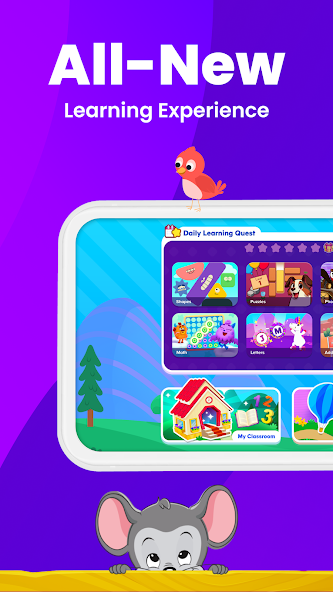You don’t remember the exact moment you learned to read, but you remember what it gave you. A doorway. A sense of direction. A confidence that you could make sense of the world on your own. And now, watching your child stumble through their first sounds, tracing letters with fingers still sticky from fruit, you hope they’ll find the same wonder in stories, in symbols, in themselves.

But parenting now means balancing that hope with reality. You want them to love books, but they’re growing up with screens. You want them to play outside, but the world outside isn’t always safe. You want to teach, but you’re tired. You want to be everything, but you’re human. That’s where the right kind of tech can soften the edges.
1.When Learning Feels Like Play
Apps like Kiddopia are not just bright colours and catchy music. It’s that the app doesn’t treat learning like a chore. It welcomes kids into a world where math problems feel like puzzles, and language is something they can taste, tap, and tumble through.
2.Repetition Doesn’t Have to Be Boring
Every parent knows the drill: once your child finds something they love, they want it again. And again. And again. ABC Kids Learning Games taps into that rhythm. It turns repetition into ritual, and ritual into mastery. The app leans on what’s familiar (letters, matching, sorting), but makes it just fresh enough each time to keep kids engaged.
It’s not about flash. It’s about forming the tiny loops of memory that eventually help a child recognise a letter, then a word, then a sentence. And when they finally do? That spark in their eyes is worth everything.
3.When Screens Become Companions, Not Competitors
It’s tempting to view technology as the thing that takes our children away from books. But in the case of reading.com, the opposite is often true. Here’s an app that sits beside a parent, not instead of one. Its guided lessons are calm, its voice reassuring. It doesn’t overpromise. It just walks patiently until your child is ready to run.
4.The Real Goal Isn’t Reading. It’s Connection.
Whether your child is swiping through ABC games or sounding out words in a quiet moment with you, what matters most isn’t how fast they learn. It’s how they feel while learning. Do they feel safe? Curious? Capable?
Because the goal isn’t to raise readers who win spelling bees, it’s to raise humans who feel confident navigating a complex world. And reading in all its forms is one of the best tools we can offer them.
5.Final Thought:
Whether it’s learning on a road trip, reading Eggs after dinner, revision during quiet time, or fun and cuddles on a rainy Sunday — these tools don’t replace the love, chaos, the messy living-room storytimes. They support them. They extend the moments when we can’t always be there. They make sure learning doesn’t stop when life gets busy.
Because reading isn’t just a skill, it’s an invitation. To explore. To question. To belong.